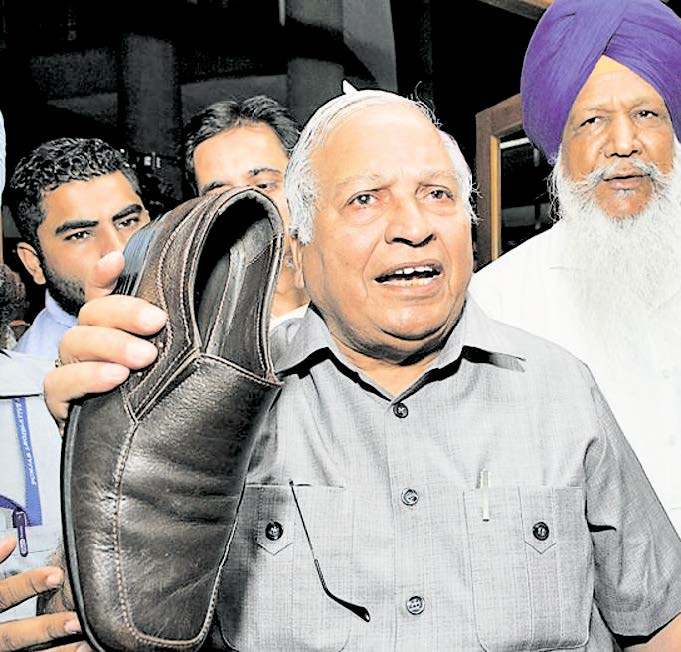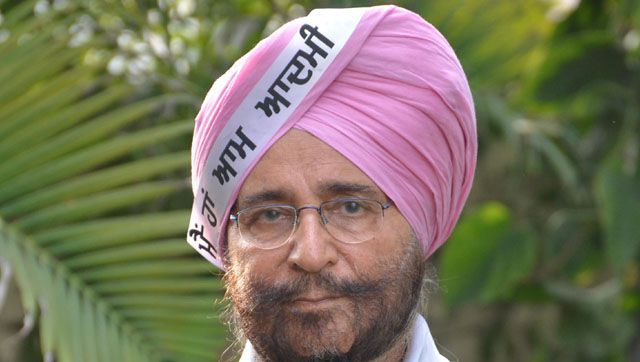
The author finds much untruth in the claims that Modi has provided the best model of development in the State of Gujarat and that Gujarat has made rapid strides in every field. Quoting extensively from various authentic sources which he has laboriously indexed, he accuses Modi and his supporters of creating a myth that fails to stand the scrutiny of reality.
As I write this, Gujarat Chief Minister Narendra Modi is creating news everywhere through his speeches and propaganda, as the BJP‘s Prime Ministerial candidate. It has not only created quite an excitement in the Indian electoral scene that is getting ready for the 2014 general election, but also with a core NRI segment around the globe and the USA in particular. Modi is running for the most important office in India with some heavy baggage accumulated over the years as the Chief Executive of Gujarat through his divisive rule and autocratic ways.
Modi is largely disliked by the Muslim minority in Gujarat, who accuse him of culpability in the communal violence that has killed over a 1000 people and destroyed crores of rupees worth of properties. When Reuters asked him earlier this year if he regretted the killings in 2002, he said, if “someone else is driving a car and we’re sitting behind, even then if a puppy comes under the wheel, will it be painful or not? Of course it is.” He has never ever expressed regret for the gory mayhem of Muslims; much less apologize for the incident.
This cavalier attitude by a man who is the Chief Law Enforcement Officer of the State is deeply troubling to peace loving people everywhere in India. It has been a matter of concern to the civilized world, led by USA that has repeatedly refused Visa to Modi taking cognizance of his human rights violations. Supporters of Modi in the Diaspora are quick to forgive him on many of his transgressions on the reasoning that what he has done for Gujarat in terms of development somehow qualifies him to be the Prime Minister. They seem to believe that he could uplift the middle class, and root out corruption especially in the public arena. However, the question that needs to be answered is whether the rest of India needs a Gujarat Model of development to bring peace and prosperity to its own citizens.
However, the truth is Gujarat does not figure even among the 10 most developed states. Among the country’s 28 states, Gujarat has been ranked 12th – surpassed even by the hill state Uttarakhand (sixth) – according to the underdevelopment index formulated by a panel under Raghuram Rajan, current Governor of Reserve Bank. The new index is based on averages of ten sub-components – monthly per-capita income, consumption expenditure, education, health, household amenities, poverty rate, female literacy, share of scheduled castes and scheduled tribes in the total population, urbanization rate, financial inclusion, and connectivity. Goa, Kerala and Tamil Nadu led the list of the top 10 among the most developed states according to this report.
Let us look at some of the Statistics here.
In 10 years 60,000 small-scale industries have been closed down .
Gujarat ranks 5TH in F.D.I.
The state’s total debt was less than Rs 10,000 crore when the BJP first came to power in Gujarat in 1995. Gujarat’s actual debt has mounted from Rs 45,301 crore in 2001-02 when Modi took over to Rs 1,38,978 crore on December 30, 2012.
The debt would mount to Rs 2,07,695 crore as per the state government’s budget estimates by 2015-16 .
Gujarat is at 8th position in agricultural growth. Gujarat never achieved 10% growth in Agriculture sector.
As per Government of Gujarat’s own statistics from year 2005-2006 to 2010-2011, growth in GSDP in Agriculture and Allied sector is 3.44% only: not double digit or 10% .
Close to half of the state’s children under the age of 5 (44.6 %) are known to be suffering from malnutrition.
70 per cent are said to be anemic while 40 per cent are underweight . Health expenditure in Gujarat has fallen from 4.25% in 1990-95 to 0.77% in 2005-2010. Gujarat occupied the second position from the bottom in terms of allocation of health in state budget .
According to report on Global Hunger (2009), among the major 17 states in India, Gujarat ranks 13th with a Hunger Index of 23.3. The state has been declared as an “alarming state” along with MP, Jharkhand and Bihar . Gujarat has 32% poverty in 2001 and it reached 39.5% in 2011. 40 out of 100 people are poor. Statistics of the NSSO show that the percentage of reduction of poverty between 2004 and 2010 was the lowest in Gujarat, at 8.6 per cent . Data shows that 67 per cent of rural households in the State ranks 10th in the use of latrines .
If one independently looks at various human development indices whether it is literacy, education, quality healthcare, consumption, expenditures, infant mortality, gender ratio, minimum wage, underage employment of children, sanitary facilities in public schools, etc., Gujarat has quite a distance to go to catch up with other states. According to Economist and Planning Commission member Abhijit Sen,”If you look at HDI data from Gujarat, you will see a large difference between the levels of development of tribals and non-tribals, and between those of urban and rural people.
When the statelevel average is worked out, the overall score (of Gujarat) would fall short of those of several other states…The growth rate of the state is good. It has attracted industrial investment and registered agricultural growth. But in HDI like infant mortality, it is on par with Bihar”. It then begs the question: why is this myth about the Gujarat model of development is being trumpeted around? In the past several years, it appears that the Modi PR machine has done an effective job passing misinformation for the consumption of the masses.
A large segment of the NRI population also bought into the idea that Modi could cure India’s ills by applying the Gujarat formula. When it comes to corruption, Modi is generally considered corruption free. However there is an additional myth that he is so tough on corruption that Gujarat faces less of it than other states. This is not an honest assessment. It is mainly the perception of Modi’s admirers outside Gujarat that he has created a corruption-free state. The truth is that the problems most Indians are troubled by are also faced by Gujaratis.
One only needs to look at the real estate transactions with regard to taxes or underground smuggling and distribution of alcohol to see the glimpse of what is taking place under the radar. People in Gujarat continue to report cases of corruption to the Commission that is empowered to look into it. It has been reported that in 2010, the Commission received 7339 complaints regarding corruption which was considerably higher than 2009’s 7093 complaints.
Commission observed that out of 7339 complaints, 352 were of serious nature and investigations had been ordered. A certain segment of the Diaspora is indeed passionate about defending Modi and supporting him for higher office. However, let that be based on rational arguments with supporting facts, not based on myths and hearsay that may not bode well for us or India in the long run.





Be the first to comment